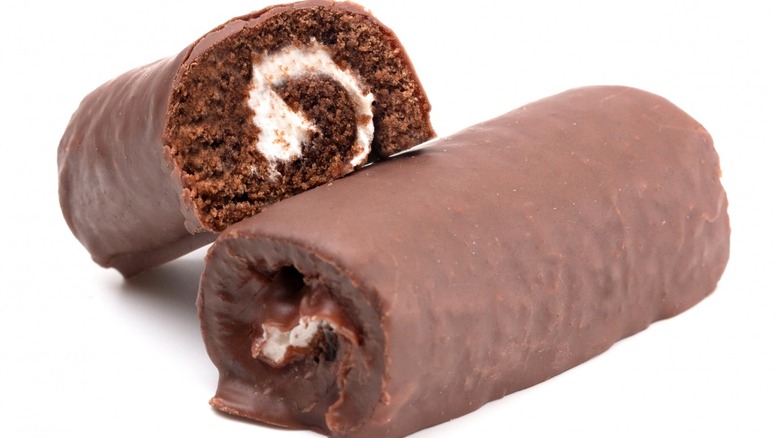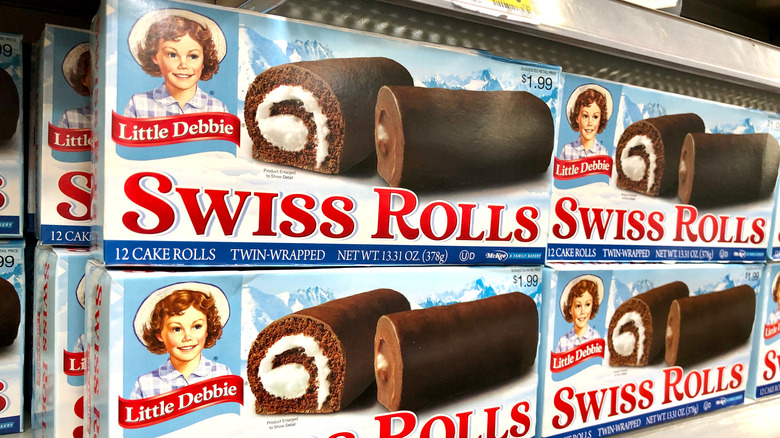How Little Debbie's Swiss Rolls Are Actually A Knock-Off
It's 3 a.m., and you awaken with an almost insatiable craving in your stomach. You groggily fumble your way to the kitchen, searching for that one prized morsel that'll quell your late-night hunger. Through the haze of half-consciousness, you finally find what you're looking for: a pack of Little Debbie's Swiss Rolls. After washing down the snack cakes with a cold glass of milk, you fall back to sleep, lulled to rest with the taste of chocolate and crème filling still on your lips.
Little Debbie's story is one of both hard work and craftiness. According to the company's website, Little Debbie's began life in 1933, with founder O.D. McKee selling cakes for a local bakery out of his Whippet. From there, the company has grown to become synonymous with snack cakes all across the nation, introducing such classic delights as Oatmeal Creme Pies, Cosmic Brownies, Zebra Cakes, and, of course, Swiss Rolls. You can even enjoy Little Debbie snack cakes in the form of ice cream (via Food Business News).
But what would happen if it turned out that the famous Swiss Rolls aren't actually the product of Little Debbie? What if it turned out that they were actually a "knock-off" from a lesser-known product?
Swiss Rolls are actually based off a European product
As it would turn out, Swiss Rolls aren't exactly as American as they may seem; their origins are actually based in Europe. As the story goes, per Little Debbie, O.D. McKee was skulking around a European trade show in 1964, searching for what he believed would be "the next big thing." What he noticed wasn't a very big at all, in fact, he noticed that several bakeries were serving up a miniature "cake" known as roulade. Inspired by what he saw, McKee hurried back to Tennessee, where he immediately began production on his own version of these little cakes. In 1965, the Swiss Roll was born.
But if Little Debbie didn't invent the Swiss Roll, then who did? There appears to be no single person that can be credited with it. Foods of England, for example, claims that the rolled cake was in England since the end of the 19th century. Contrary to this, an 1852 journal called the Northern Farmer published in New York has a basic recipe for a "jelly cake," which is a predecessor to the modern jelly roll.
While the exact origins of the Swiss Roll are unclear, Little Debbie's take on the cake has made it clear that the company helped to popularize them well into the 21st century.

